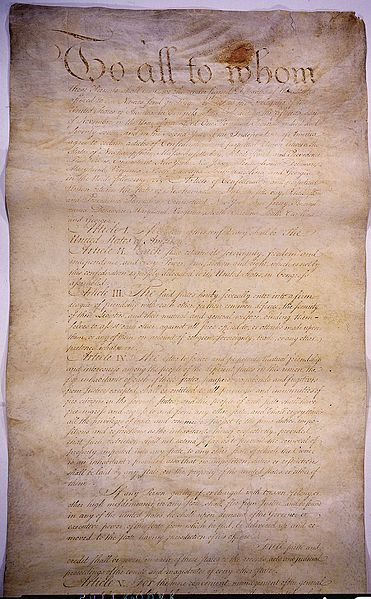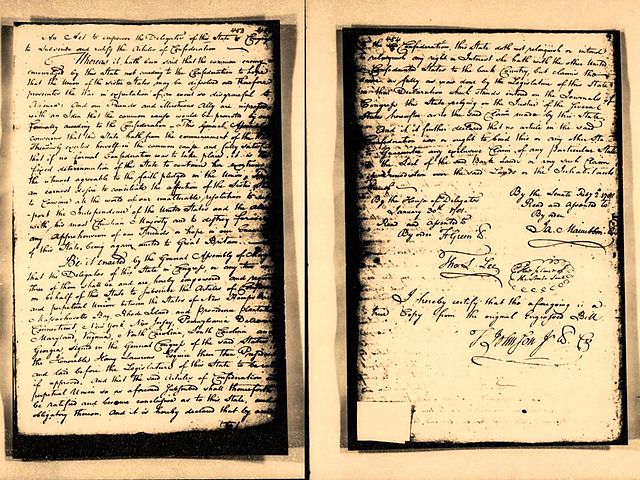Oliver Wolcott Sr. was an American Founding Father and politician. He was a signer of the United States Declaration of Independence and the Articles of Confederation as a representative of Connecticut, and the nineteenth governor of Connecticut. Wolcott was a major general for the Connecticut militia in the Revolutionary War serving under George Washington.
Portrait by Ralph Earl
The grave of Oliver Wolcott Sr.
Articles of Confederation
The Articles of Confederation and Perpetual Union was an agreement among the 13 states of the United States, formerly the Thirteen Colonies, that served as the nation's first frame of government. It was debated by the Second Continental Congress at Independence Hall in Philadelphia between July 1776 and November 1777, and finalized by the Congress on November 15, 1777. It came into force on March 1, 1781, after being ratified by all 13 colonial states. A guiding principle of the Articles was the establishment and preservation of the independence and sovereignty of the states. The Articles consciously established a weak federal government, affording it only those powers the former colonies had recognized as belonging to king and parliament. The document provided clearly written rules for how the states' league of friendship, known as the Perpetual Union, would be organized.
Page I of the Articles of Confederation
1977 13-cent U.S. Postage stamp commemorating the Articles of Confederation bicentennial; the draft was completed on November 15, 1777
The Act of the Maryland legislature to ratify the Articles of Confederation, February 2, 1781
Preamble to Art. V, Sec. 1






